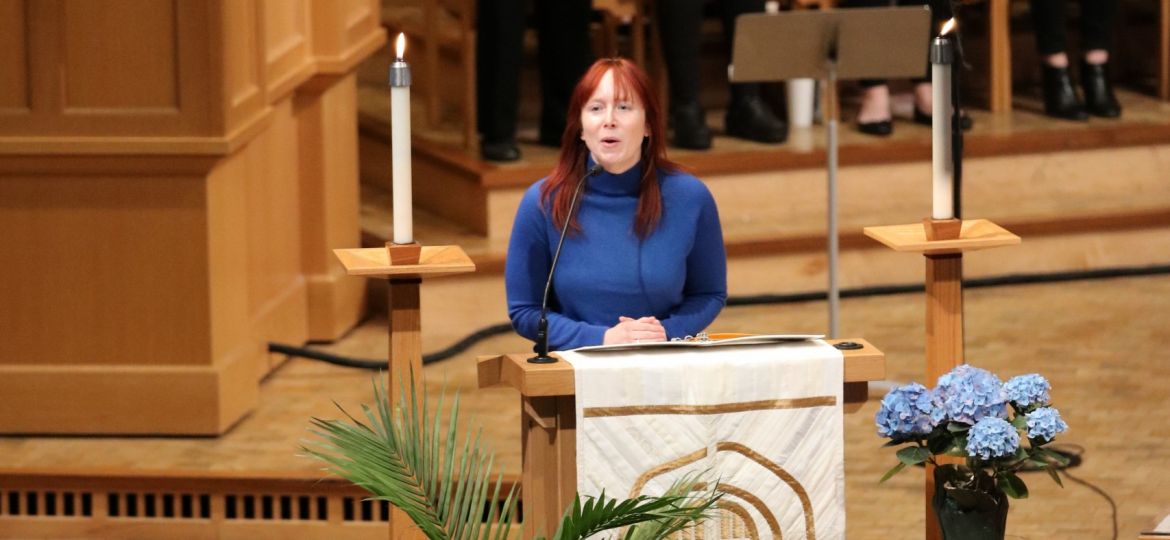
During the first week of March, St. Olaf celebrated the 50-year anniversary of women being ordained in the Lutheran Church, the 40-year anniversary of women of color being ordained and the 10-year anniversary of LGBTQIA+ individuals being able to serve openly.
The College honored these anniversaries through themed daily chapels and a panel discussion. The anniversary is an opportunity to lament that women have been barred from serving, acknowledge how far women in the Evangelical Lutheran Church in America (ELCA) have come and identify what work still needs to be done, according to the College’s Associate Pastor, Katherine Fick.
The week began with a chapel talk from Kristine Carlson ’74, a retired ELCA pastor with nearly 40 years of ministry under her belt. She was one of the first women ordained in the Lutheran tradition, which also meant she was nearly always the first woman to hold any position she had throughout her career. Carlson shared the joys of her time as a pastor, but also the sexism and barriers that came along with it.
Regina Hassanally, the bishop of the Southeastern Minnesota Synod of the ELCA, led chapel on Tuesday. She was the first woman elected as bishop in the synod in which St. Olaf resides and is the youngest person ever elected bishop in the ELCA. She spoke to her vocational story, in which she found empowerment through a non-linear and non-traditional path.
On Wednesday, Fick gave a Lenten “Liturgy of the Ordinary” talk addressing how it is empowering that from her own personal experience, being a woman pastor is ordinary. Fick also stressed that if we want inclusive leadership not to be the exception, but the norm, we must normalize women of all backgrounds as leaders in the church.
“I feel like there are still barriers to women of color, to trans women, to people who don’t identify on a gender binary, for people who are gay or lesbian or queer,” Fick said. “I feel like those identities have not yet been normalized in the church.”
Beverly Wallace, an African-American pastor and associate professor of congregational and community care at Luther Seminary, led a chapel talk on Thursday addressing the intersections of being a woman of color and a pastor. She called for the church to continue breaking down enduring structures of racism and sexism. For example, women of color still have longer waiting periods before their first call to serve a congregation than white women.
Thursday’s chapel talk was followed by a panel discussion entitled “She’s My Pastor: Fifty Years of Ordaining Lutheran Women.”
“When I think about the future, when we think of pastors, we see this beautiful range of gender and sexuality, race and ethnicity represented, and that we can look at all of them, inclusive of identities and say, ‘These are our leaders,’” Fick said. “That’s what I look forward to.”

